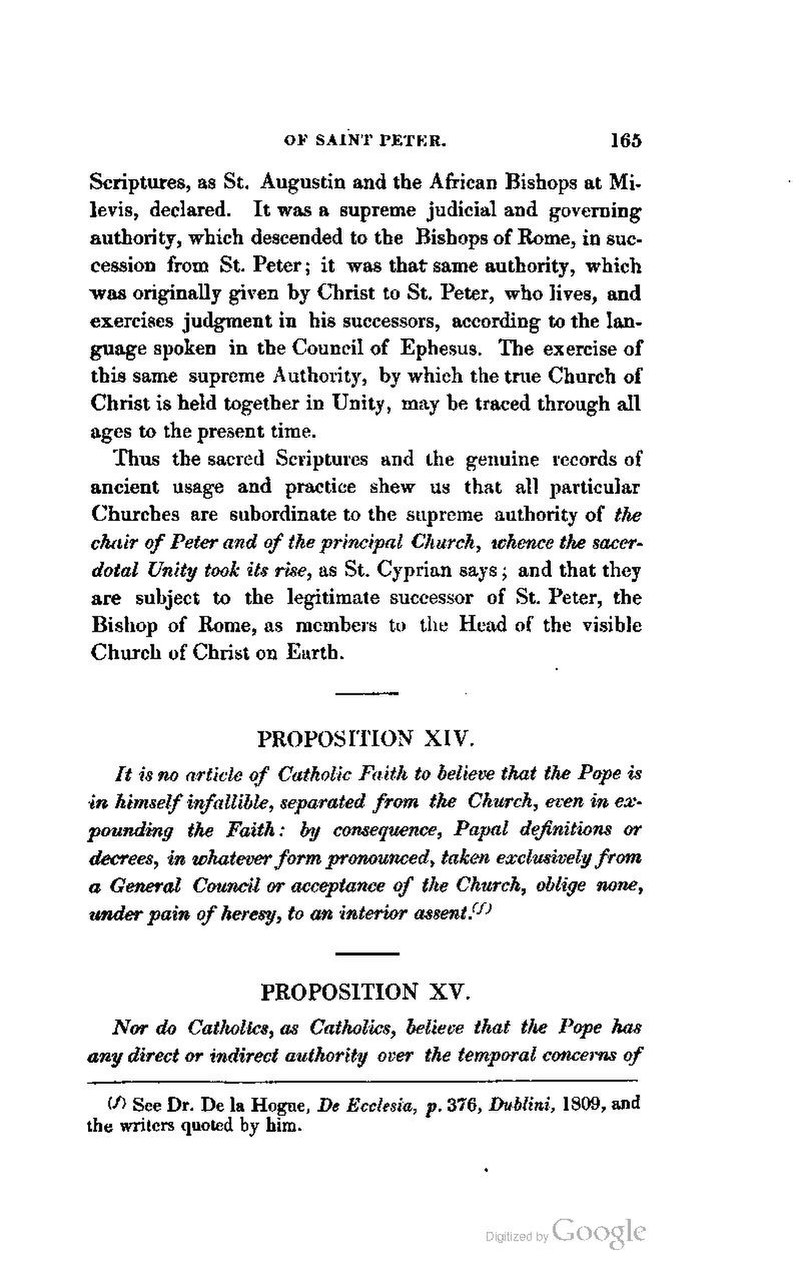Scriptures, as St. Augustin and the African Bishops at Milevis, declared. It was a supreme judicial and governing authority, which descended to the Bishops of Rome, in succession from St. Peter; it was that same authority, which was originally given by Christ to St. Peter, who lives, and exercises judgment in his successors, according to the language spoken in the Council of Ephesus. The exercise of this same supreme Authority, by which the true Church of Christ is held together in Unity, may be traced through all ages to the present time.
Thus the sacred Scriptures and the genuine records of ancient usage and practice shew us that all particular Churches are subordinate to the supreme authority of the chair of Peter and of the principal Church, whence the sacerdotal Unity took its rise, as St. Cyprian says; and that they are subject to the legitimate successor of St. Peter, the Bishop of Rome, as members to the Head of the visible Church of Christ on Earth.
PROPOSITION XIV.
It is no article of Catholic Faith to believe that the Pope is in himself infallible, separated from the Church, even in expounding the Faith: by consequence, Papal definitions or decrees, in whatever form pronounced, taken exclusively from a General Council or acceptance of the Church, oblige none, under pain of heresy, to an interior assent.[1]
PROPOSITION XV.
Nor do Catholics, as Catholics, believe that the Pope has any direct or indirect authority over the temporal concerns of
- ↑ See Dr. De la Hogue, De Ecclesia, p. 376, Dublini, 1809, and the writers quoted by him.
